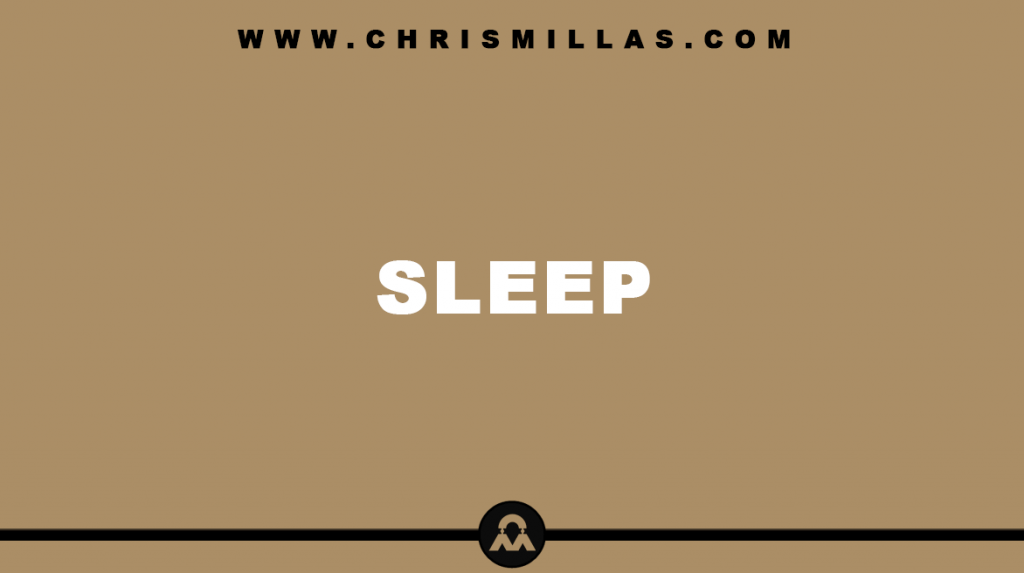In this post, we’ll unpack all you need to know about sleep, explaining why it’s an important pillar to health and longevity, its roll in evolution, REM versus Non-REM sleep, the benefits and more.
Why Sleep Is The Key To Health & Longevity
Sleep is a fundamental pillar to health and longevity. It enhances our mental, emotional and physical states.
In a study published in The Lancet, individuals who were sleep-deprived took 14% longer to complete tasks and made 20% more errors than those who were well rested. Not only does sleep slow you down, it also forces you to spend more time correcting your errors.
For athletes, post-performance sleep accelerates recovery from inflammation, stimulates muscle repair and growth and helps restock cellular energy in the form of glucose and glycogen.
In a study of competitive young athletes, a chronic lack of sleep was associated with a higher risk of injury.
The Evolutionary Perspective
From an evolutionary perspective, sleep makes us vulnerable to potential predators. Thus, for it to have been selected as an adaptation, it must have extremely important benefits to our health and well-being.
Sleep enriches a range of mental and physical functions. Mentally, sleep aids learning, memory and decision making. Physically, sleep strengthens the immune and cardiovascular systems, reforms the body’s metabolic state, regulates appetite and maintains a thriving gut microbiome.
Rem Sleep Versus Non-REM Sleep
Sleep is separated into two main types; Rapid Eye Movement (REM) sleep and Non-Rapid Eye Movement (Non-REM) deep sleep. Both REM sleep and non-REM sleep fight for brain domination throughout the night in 90-minute cycles.
Generally, the first half of sleep is dominated by non-REM deep sleep and the second half of sleep is dominated by REM sleep.
During REM sleep, the brain paralyzes the body so the mind can dream safely without the body taking action.
Studies show an inverse relationship between REM sleep and all-cause mortality. In other words, the lower your REM sleep, the more likely you are to die.
10 Benefits Of Sleep
There are countless benefits to getting a good night’s sleep. Below are 10 of the most powerful.
- Balances hormones.
- Boosts metabolism.
- Detoxifies the brain.
- Improves brain function.
- Increases physical energy.
- Lowers blood pressure.
- Reduces risk of cancer and dementia.
- Reduces stress.
- Strengthens the immune system.
- Strengthens memories.
When Should You Sleep?
Research shows that we get the most beneficial hormonal secretions and recovery by sleeping during the hours of 10PM and 2AM. This is a period when you get the most rejuvenating effects of sleep.
Around 10PM, following a peak in melatonin, there is an increase in internal metabolic energy to repair, strengthen and rejuvenate your body. Nature gives us direct cues on when to sleep, we just need to pay attention to them.
Research shows that going to sleep at roughly the same time each night (give or take 30 minutes) allows you to capture the maximum release of growth hormone.
How Long Should You Sleep For?
Sleep has a non-linear relationship ― the shorter your sleep, the shorter your life. However, just like we can over-eat, over-hydrate and over-exercise, we can also over-sleep.
Studies suggest that the optimum amount of sleep is between seven and nine hours.
Ultimately, however, the key to knowing whether you are getting enough sleep is based on whether or not you feel tired during the day. If you do feel tired, then you aren’t likely getting enough sleep. If yo don’t feel tired, then you are likely getting enough sleep.
Sleep & Disruption
It’s natural to wake up during sleep, especially with age.
When a 90-minute sleep cycle is complete, almost everyone wakes up and changes position because the body has been paralyzed in REM.
For optimal health, we should aim to sleep for 85% of the total time we are in bed.
8 Ways To Improve Sleep Quality
It’s not just about the quantity of sleep you get, it’s about the quality of sleep you get. Below are 9 effective ways you can optimise both the quantity and quality of your sleep.
- Go to sleep and wake up at regular times.
- Avoid technology at least 30 minutes before bed.
- Cool your body temperature.
- Exercise.
- Increase sunlight exposure.
- Maximise how dark the room is.
- Invest in a quality mattress.
- Minimise alcohol.
Summary (TL;DR)
The optimum time to sleep is between 10PM and 2AM and the optimum amount of time to sleep for is between seven and nine hours.
Sleeping in alignment with the natural cycles mother nature has given us is the key to a healthier, happier and longer life.







